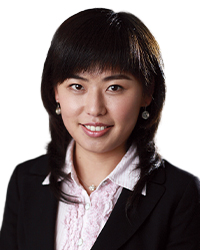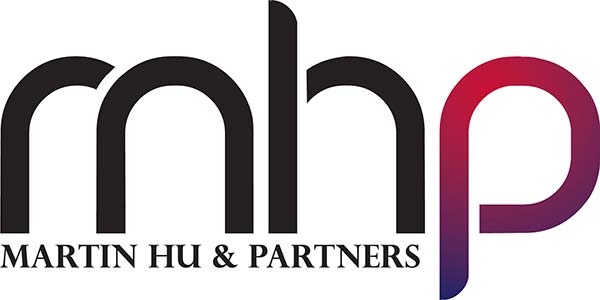Last month, in part 2 of this article, we discussed issues that parties can encounter in the establishment, operation and management of Sino-foreign cooperative schools. This month, in the final part of the article, we will analyse issues relating to the profits and reasonable returns from such schools, as well as the most recent policies issued by the PRC government relating to, and the most recent trends with respect to, such schools.
Profits and reasonable returns

Associate
Martin Hu & Partners
Pursuant to the PRC Sino-foreign Cooperation in Education Regulations, schools constitute an integral part of the PRC’s education system and are considered institutions for the public good. Accordingly, schools are of a non-profit nature.
However, to promote the development of schools and encourage Sino-foreign parties actively to cooperate in the establishment and operation of such schools, the PRC government permits such parties to derive reasonable returns.
Nonetheless, such returns are not considered returns on investment and certain conditions must be satisfied in order to obtain them:
- parties to schools may derive reasonable returns, but parties to Sino-foreign cooperative education projects are not permitted to do so;
- the articles of association of a school must expressly state that the Sino-foreign parties actively request reasonable returns, failing which it will be inferred that the parties have not made such a request;
- the Sino-foreign parties may obtain returns only in years when the school has an operational surplus. When there is no operational surplus, they may not obtain any returns;
- the obtaining of reasonable returns is required to comply with statutory procedures.
Before determining what is a “reasonable” return for Sino-foreign parties, a school is required to make public details of its operations, the quality of its teaching and its financial position. Then, the decision-making organization of the school will make its decision on the size of the reasonable returns that the Sino-foreign parties will obtain. Once this decision has been made, the Sino-foreign parties are required to submit details of the decision, together with various materials including the details of the operation of the school and its financial position, to the education authority for the record.
In determining the level of the reasonable returns which they are to obtain from the operational surplus, the Sino-foreign parties should comprehensively consider such factors as the educational level of the school, the quality of its education, tuition rates, and expenditure on teaching activities and improving its operating conditions. If a school charges high tuition fees but spends little on teaching, and its teaching quality and the level of education provided are relatively low, the rate of reasonable return that the Sino-foreign parties may make may not exceed the rate of other schools of the same grade and type.
Distribution of tuition fees
A closely related issue is that of whether Sino-foreign parties can directly distribute the revenue from tuition fees charged. The answer is no. Sino-foreign parties may not equate the obtaining of reasonable returns to the distribution of tuition fees.
The tuition fees charged by a school should be used for educational and teaching activities and enhancing school operations and quality. This is distinct from “reasonable” returns which are to be allocated at a certain percentage from the operational surplus. The balance of the operational surplus remaining after allocation of the reasonable returns should also be used for the educational and teaching activities of the School.
Payment of taxes
Another issue relating to reasonable returns is the question of whether taxes are payable on the reasonable returns obtained. With respect to income tax, the funds for state schools in China are allocated from public finances and their profits are counted in state finances. Accordingly, state schools essentially are not required to pay taxes. However, private schools differ from state schools, and one of two circumstances apply to them: pursuant to the PRC Promotion of Private Education Law Implementing Regulations, private schools that do not request reasonable returns are eligible for the same tax treatment as state schools, i.e. they are not required to pay taxes; in the case of schools where Sino-foreign parties request reasonable returns, the relevant authorities are supposed to formulate tax policies accordingly but, to date, no such policies have been issued.
However, in practice, local tax authorities are becoming stricter in their treatment of returns from schools derived by Sino-foreign parties, particularly by the monitoring of foreign exchange channels.
Recent trends
At the beginning of this year, the Ministry of Education decided to resume the examination and approval of Sino-foreign cooperative schools or education projects which it had halted for four years due to concerns over quality. The opportunity for foreign education institutions to run educational activities in the PRC therefore exists once more.
Additionally, the Ministry of Education recently published on its website a list of more than 400 Sino-foreign cooperative schools or projects that provide education at the undergraduate level and above. This is the first time that the Ministry of Education has published such comprehensive information since the issue and implementation of the PRC Sino-foreign Cooperation in Education Regulations in 2003. Furthermore, the Ministry of Education has provided important advice to potential students and their parents on how to select such schools or projects.
With respect to Sino-foreign educational activities being without official approval, the Ministry of Education has stressed that the foreign educational attainments, degrees and higher education diplomas granted by Sino-foreign cooperative schools or projects that have not been approved by the relevant educational authorities of the PRC government will not be recognized by the government.
Sally Wang is an associate at Martin Hu & Partners (MHP Law Firm)
Martin Hu & Partners
19/F Yongda International Tower
2277 Longyang Road
Shanghai, China
Postal code: 201204
Fax: +86 21 5010 1222
www.mhplawyer.com
Martin Hu
Tel: +86 21 5010 1666*966
E-mail: martin.hu@mhplawyer.com
Sally Wang
Tel: +86 21 5010 1666*933
E-mail: sally.wang@mhplawyer.com






















